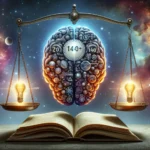Unlocking the Secrets of Genius IQ Scores: What You Need to Know
When it comes to measuring intelligence, IQ (intelligence quotient) scores have long been a topic of fascination and debate. As we delve into the world of IQ scores, one particular category consistently piques the interest of many: the genius IQ score. But what exactly constitutes a genius IQ, and how does it set itself apart from the average?
Understanding IQ Scores: A Brief Overview
IQ scores are derived from standardized tests designed to assess human intelligence. These scores are calculated by comparing an individual’s test results with those of the broader population. Typically, an IQ score is plotted on a bell curve, with the vast majority of people scoring within the average range.
The Average and the Extraordinary
The average IQ score hovers around 100. However, when it comes to genius-level intellect, we’re talking about a much rarer echelon. A genius IQ score is often defined as anything over 140, which places an individual in approximately the top 2% of the population.
The Genius Threshold: Breaking Down the Numbers
Achieving a score above 140 is no small feat and often implies a significant level of intellectual prowess. People within this category are usually considered exceptionally gifted and possess cognitive abilities that are markedly higher than the norm.
The Hallmarks of Genius: More Than Just a Number
While a genius IQ score can be indicative of high intellectual potential, it’s essential to note that intelligence is multifaceted. Individuals with high IQ scores may exhibit exceptional analytical skills, creative thinking, problem-solving abilities, and an advanced capacity for learning and understanding complex concepts.
The Role of IQ Tests in Identifying Genius
IQ tests are the primary tool for quantifying intellect and potentially identifying genius-level intelligence. These tests are crafted to evaluate various cognitive skills, including memory, spatial recognition, mathematical ability, and language comprehension.
The Mystique of the Genius IQ Club
Throughout history, there have been numerous figures with purported genius IQs, including Albert Einstein and Leonardo da Vinci. Such individuals have left indelible marks on science, art, and culture, often attributed to their extraordinary intellectual capabilities.
Nurturing Genius: Beyond the Score
It’s crucial to recognize that a high IQ score does not guarantee success. The nurturing of talent, the development of social and emotional skills, and the fostering of creativity and motivation are equally important in realizing the potential that a genius IQ score might suggest.
The Limitations of IQ Scores
It is also worth mentioning that IQ scores have limitations. They don’t capture all elements of intelligence, such as emotional intelligence, practical knowledge, social skills, and other non-cognitive abilities that contribute to a person’s overall capabilities.
In Conclusion: The Fascination with Genius IQ
The genius IQ score remains an area of intrigue, representing the upper echelons of human cognitive ability. While impressive, these scores are but one indicator of potential, and true genius often lies in how individuals use their intelligence to innovate, create, and contribute to the advancement of society.
Understanding the genius IQ score can inspire and challenge us to think about intelligence in multifaceted ways. It encourages us to look beyond numbers and consider the broader scope of human potential, reminding us that brilliance takes many forms and can manifest in a multitude of ways across various domains.

